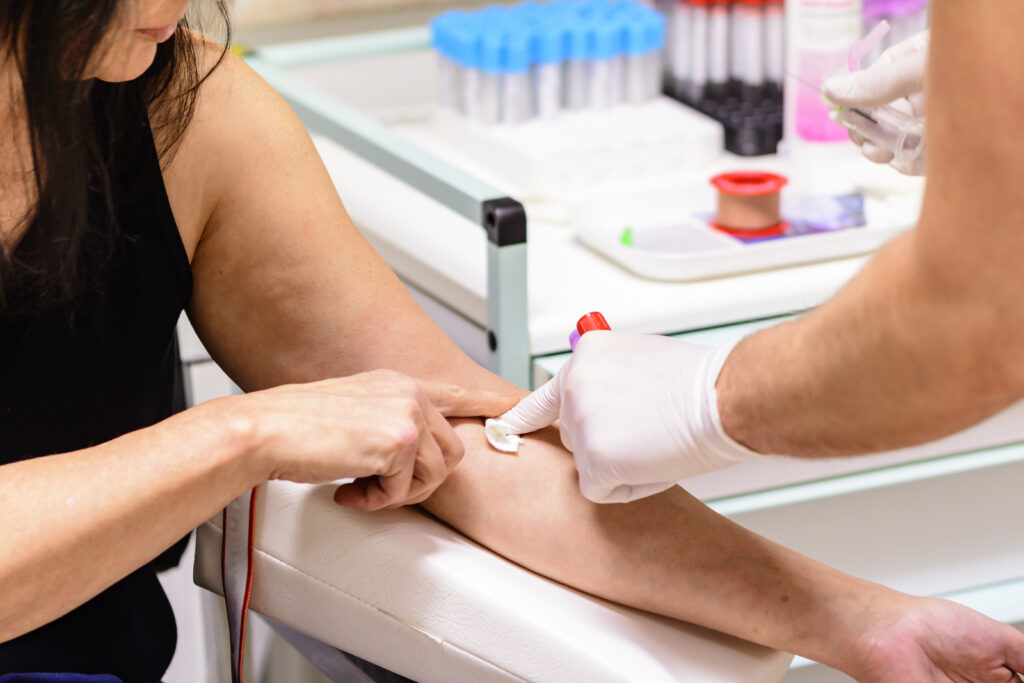Now live! RTHM Direct – simplified medication access for Long COVID, ME/CFS and related conditions. Check it out
Long COVID, characterized by lingering symptoms long after the acute phase of the virus has passed, is becoming a significant concern for healthcare professionals and patients alike. But how does a doctor diagnose Long COVID? While there is not currently a single diagnostic test for Long COVID, doctors can use other diagnostic tests and medical history to diagnose Long COVID.
Understanding Long COVID
Long COVID, also known as Post-Acute Sequelae of SARS-CoV-2 infection (PASC), is a condition where individuals continue to experience symptoms or develop new ones that can last months or years after their initial recovery from COVID-19. Symptoms can range from fatigue, brain fog, and breathlessness to heart palpitations and gastrointestinal issues.
How Does a Doctor Diagnose Long COVID?
Diagnosing Long COVID is a complex process due to the wide range of symptoms and their intermittent nature. There is currently no specific laboratory test to confirm Long COVID. Instead, healthcare professionals, like those with RTHM, rely on a patient’s health history, physical examination, and information about their COVID-19 infection.
- Health History and Physical Examination
A comprehensive health history is crucial in diagnosing Long COVID. Doctors will ask about the patient’s experience with COVID-19, the symptoms they’ve been experiencing, their duration, and their impact on daily life. A physical examination can also provide valuable insights into the patient’s condition.
- COVID-19 Infection Information
Information about the patient’s COVID-19 infection is another critical piece of the puzzle. This includes how the infection was diagnosed (PCR test, antigen test, or antibody test), the severity of the infection, and the duration of the acute illness.
- Ruling Out Other Conditions
A key part of diagnosing Long COVID involves ruling out other conditions that could cause similar symptoms. This process, known as differential diagnosis, helps ensure that the symptoms are indeed a result of Long COVID and not another underlying condition.
- Symptom Assessment
Given the wide range of possible Long COVID symptoms, healthcare professionals may suggest some tests such as blood tests, exercise tolerance tests, pulse oximetry, or chest X-rays, depending on the symptoms presented by the patient.
 The Future of Long COVID Diagnosis
The Future of Long COVID Diagnosis
As research continues, scientists and medical providers hope to develop more definitive diagnostic criteria and possibly laboratory tests for Long COVID. Clinical trials are underway to understand the condition better and develop effective treatments.
Long COVID is a complex and evolving condition. While the process of diagnosing it can be challenging due to the wide range of symptoms and their intermittent nature, healthcare professionals are using a comprehensive approach that includes health history, physical examination, COVID-19 infection information, and ruling out other conditions. As research progresses, we can hope for more definitive diagnostic tools and effective treatments for this condition.
Remember, if you’re experiencing persistent symptoms after recovering from COVID-19, it’s essential to seek medical attention. Long COVID is a real condition, and early diagnosis can help manage symptoms and improve quality of life. Here at RTHM, we specialize in early Long COVID diagnosis and treatment options that help you restore your quality of life. Learn More about what RTHM Telehealth offers HERE.

Get updates
Join our mailing list



